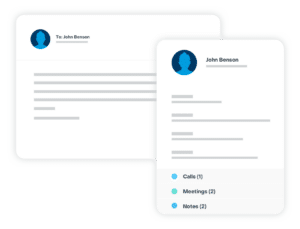Creating Harmony Between Marketing, Sales, and Service
When we think about three of the key pillars of CX—marketing, sales, and service—we discover that rather than working together like a well-tuned trio, each plays their song, often without listening to the other players around them.
For over three decades, marketing, sales, and service have struggled with siloed data, not sharing customer information and insights, which ultimately caused failing the customer themselves and diminishing the profit.
SugarCRM’s research showed that half of global sales leaders admit they cannot access customer data across marketing, sales, and service systems. This means customer-facing teams don’t have a clear picture of their customers. As a result, 53% of sales reps are frustrated by the administrative burden, with a massive knock-on effect on customer churn.
Over half (56%) of the businesses SugarCRM spoke to said customer churn increased over the 12 months, and almost half the sales leaders didn’t know which customers were more likely to leave. They described their existing CRM as not fit for purpose, not well supported by the vendor, and said it costs them revenue.
These findings might be considered a wake-up call for companies relying on the market-leading CRM incumbents focusing only on the current stage of the customer’s journey, lacking contextual information to provide meaningful insight. Usually, they also require manual feeding, which adds to the problem.
This explains why almost all organizations lean into AI-powered CRMs to take advantage of the lead insights and opportunity models and gain a significant competitive edge. 88% of respondents think they will adopt AI technology to augment their existing CRM processes over the next two years.
Remove the Barriers
Banning spreadsheets is not a reliable solution to encourage adoption. The secret is to liberate data and make spreadsheets redundant. It’s time for customer data to come out of hiding so that it’s shared for the good of the customer and the business.

For a better understanding of customer churn, you need to be more preventative and less reactive. Businesses can share their data and create a CX that anticipates and fulfills needs before customers realize they have them. Instead of worrying about churn, focus on proactive retention.
If you want your CRM system to make future predictions, you must be sure it can track your customers’ history first. AI can help, but it’s not a miracle worker. AI depends on high quality, up-to-date information to make accurate predictions. AI is the ultimate garbage in / garbage out system. The best algorithms in the world will deliver poor outcomes if you feed them with low quality data.

Businesses can reach new performance levels if they bring together sales, marketing, and service teams, unify their customer data, identify gaps, and pair it with the right technology. This means positive results like improved customer retention and increased revenue and more predictable business outcomes.
Work in Harmony
73% of respondents agree that a consolidated view of customer information across the whole organization is critical in delivering optimal CX. There are three essential elements to ensuring you have all three members of your CX band playing in harmony.
1. No Blind Spots
Customers don’t like to start over again each time they connect with your organization. Instead of being limited to piecemeal views of the customer, you need to instantly see all the relevant information about the customer—the past, present, and even future (with predictive insights)—to create that long-term relationship.

It’s time to take a sledgehammer to the walls that divide and hold data back. Remove those blind spots.
2. No Busy Work
You need to automatically capture customer data and present it safely and securely in context to everyone who needs it. Sales, marketing, and customer services staff don’t want to spend their time manually entering endless customer details, which takes them away from doing their jobs and adds the human error factor to your data.
It’s time we let technology do the heavy lifting, not the other way round.
3. No Roadblocks
Each business is unique, and so are your customer needs, so a generic solution might not be a great help. Instead of settling for an out-of-the-box solution with all the standard limitations of not knowing how an individual business or even industry works, you need to mold a solution around your needs and workflows. Once upon a time, this would have been prohibitively costly, but not anymore.
Closing Thoughts
For brands to deliver the optimal customer experience, they should seamlessly blend their marketing, sales, and service capabilities.
The technology does the work rather than time-poor and frustrated staff to deliver the high-definition experiences (HD-CX) customers are craving. The reward is great, and the risk of not doing so is even greater.
It’s time to bring your talented sales, marketing, and service solo artists together and create a supergroup that plays all the customer experience hits you know they’re capable of to boost profitability and build loyalty.
This article was initially published on consultancy.com.au.



